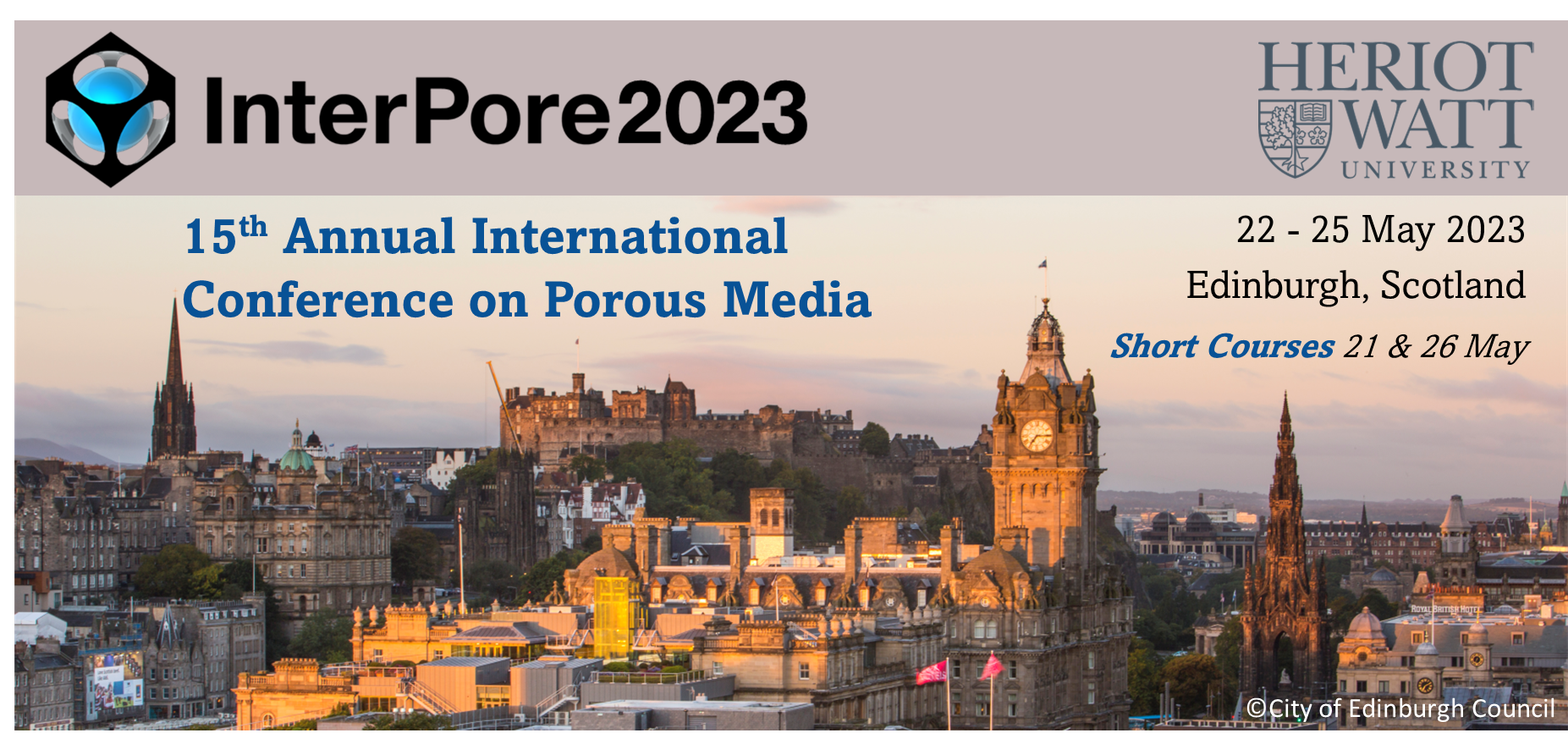Speaker
Description
Investigating the operation dynamics of energy storage systems, like lithium-ion batteries, is becoming increasingly important in a range of applications, from automotive to grid-connected energy storage. To simulate battery discharge we performed finite element simulations in unstructured grids. The transient simulations are focused on the cathode of the battery (i.e.: half-cell simulations), and the discharge at different C rates is explored [1]. The mass and charge equations of balance are solved at the microscale on three-dimensional reproductions of cathodes geometries. Three phases are considered in the electrochemical model: active material, carbon binder domain, and electrolyte. The creation of the cathode geometries is based on the fabrication process of the electrodes which allows us to produce a wide range of geometries to perform numerical simulations on. Different amounts of active material at different degrees of compression (calendering) of the electrodes have been explored to create electrodes geometries that produce different battery discharge profiles. The results of these simulations are then interpolated back to a regular 3D grid. This whole process is very costly and cannot be integrated into optimization workflows.
The multi scale neural network (MSNet) has been employed to train data-driven models to perform different tasks related to transport in porous media. Notable examples include prediction of flow fields [2], electric potential [3], and concentration fields in reactive flows [4]. In all these applications, the target of interest is the steady-state solution of the field. Nevertheless, in the case of electrochemical transport in lithium-ion batteries we are interested in knowing the discharge profile in time at different rates. Hence, the data-driven model requires modifications to learn to model the temporal dynamics.
In this work we trained an autoregressive MSNet on a dataset of time-dependent 3D simulations of electrochemical transport in lithium-ion batteries. The network takes as input the geometrical descriptors and the operating conditions, together with a temporal feature, which is: the initial condition for the prediction of the first time-frame, or the previous time-frame prediction for the prediction of the following one. Using this approach, the transient nature of the dataset is preserved, since MSNet is provided with the complete ordered samples (from initial conditions to final time) at each epoch and learns how to dampen the prediction errors along the time-frames. The predicted fields are integrated in order to reproduce the discharge curves of lithium-ion batteries. The performance of the trained network is tested on new cathodes to show its generalization capabilities. We envision this work as a proof-of-concept of the feasibility of this approach leading to the employment of the autoregressive MSNet in optimization frameworks on a wider and more challenging datasets.
References
[1] Liu, Chaoyue, et al. "An experimentally-validated 3D electrochemical model revealing electrode manufacturing parameters’ effects on battery performance." Energy Storage Materials 54 (2023): 156-163.
[2] Santos, Javier E., et al. "Computationally efficient multiscale neural networks applied to fluid flow in complex 3D porous media." Transport in porous media 140.1 (2021): 241-272.
[3] Chang, Bernard, et al. "Improving Machine Learning Predictions of Rock Electric Properties Using 3D Geometric Features." SPE Annual Technical Conference and Exhibition. OnePetro, 2022.
[4] Marcato, Agnese, et al. "Prediction of local concentration fields in porous media with chemical reaction using a multi scale convolutional neural network." Chemical Engineering Journal (2022): 140367.
| Participation | In-Person |
|---|---|
| Country | Italy |
| Energy Transition Focused Abstracts | This abstract is related to Energy Transition |
| MDPI Energies Student Poster Award | No, do not submit my presenation for the student posters award. |
| Acceptance of the Terms & Conditions | Click here to agree |







